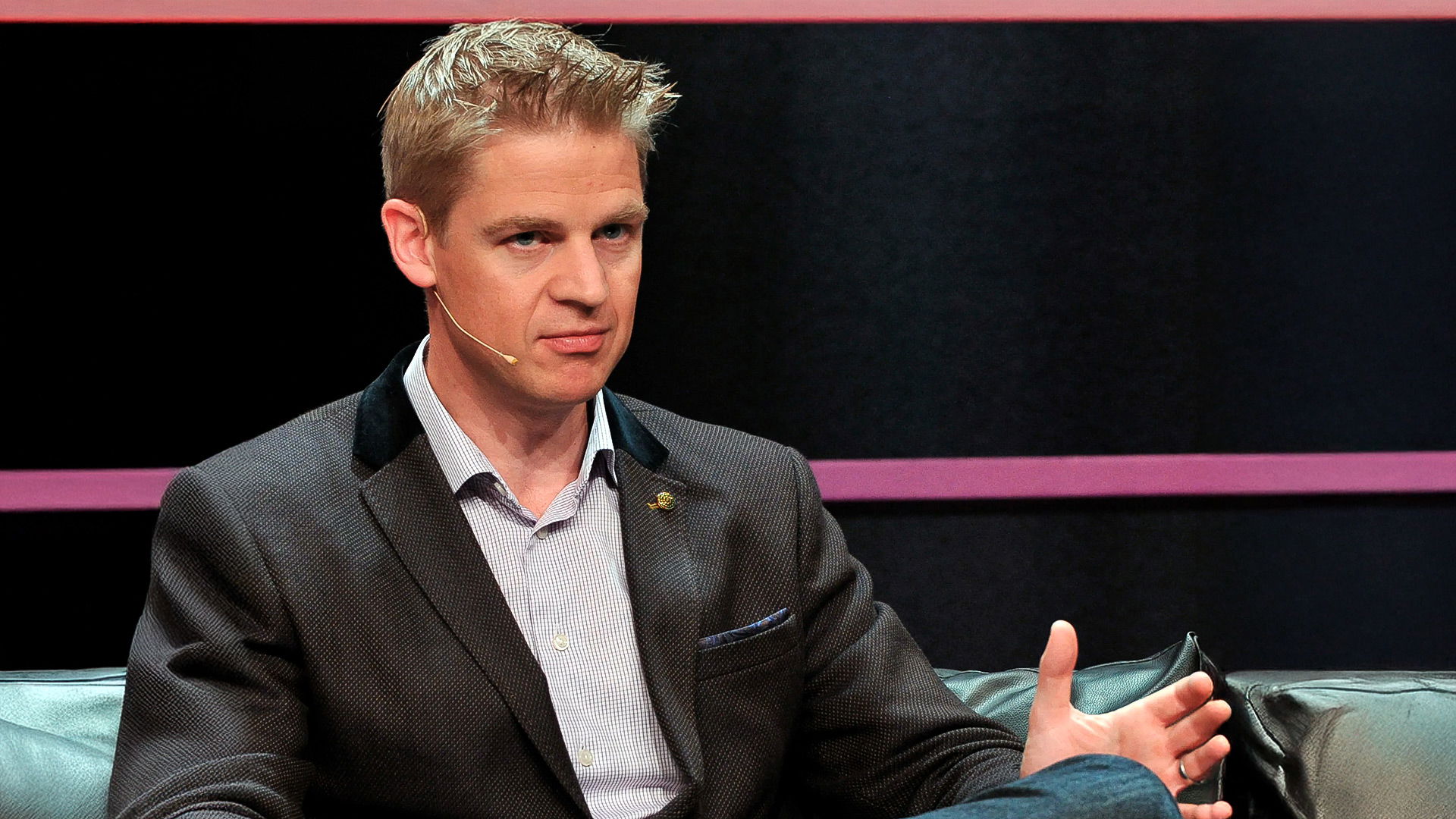Infra
Great British Energy Bill to ‘accelerate investment in renewable energy’ with £8.3bn backing | New Civil Engineer

Plans for a publicly owned power company headquartered in Scotland and backed by £8.3bn capitalisaion have been made official through the Great British Energy Bill, which will “help accelerate investment in renewable energy”.
Announced in the King’s Speech on 17 July, Great British Energy (GBE) will be “owned by and for British people” and aims to help promote energy independence and ensure taxpayers “reap the benefits” of home-grown energy.
Speaking in the House of Commons on 18 July, secretary of state for energy security and net zero Ed Miliband expressed his desire to utilise all forms of zero and low carbon electricity generation technologies and said GBE “will of course have a strong interest in nuclear power” and namechecked small modular reactors (SMRs) and Sizewell C.
He also indicated his support for tidal energy, following a question from the MP for Sefton Central Bill Esterson which hinted at the development of Mersey Tidal Power.
The government said the Bill would build on “the immediate work by the Energy Secretary to deliver the Government’s mission to achieve clean energy by 2030, including scrapping the ban on onshore windfarms and appointing Chris Stark – the former chair of the Climate Change Committee – to lead the Mission Control for 2030”.
Earlier this month renewables trade association RenewableUK published a report into how GBE can be implemented, highlighting some hurdles that will have to be overcome with regards to integrating with Great British Nuclear and the mission to decarbonise.
Companies welcome ‘positive signals’ but ask for ‘strategic thinking’
Mott MacDonald managing director of energy – Europe Claudio Tassistro said: “The formalisation of Great British Energy (GBE) as a publicly owned clean power company is great news as it will help create a greater focus on delivery of renewable energy projects.
“GBE, along with plans to focus on energy independence and unlock investment in energy infrastructure announced today, are also critical to achieving the Labour Government’s ambition to deliver a net zero electricity system by 2030.
“The challenge now is on how these plans will be put into action and how the government plans to empower the industry and regulator.”
AECOM UK and Ireland director of energy Eloise John said: “The King’s Speech was as much of a call to industry as it was laying out the new government’s ambitions.
“With Great British Energy set to partner with the private sector to deliver the clean, secure energy supply that we need by 2030, the infrastructure sector must continue to build and foster world-class capability in delivering renewables schemes at pace, from megaprojects down to community level.
“I know every one of my team – from technical experts to specialist advisory – is excited, driven and committed to the challenge ahead.”
Costain managing director of natural resources Sam White said: “GB Energy will provide industry with some assurance around the UK’s long-term approach to decarbonisation. These are positive signals, but maintaining momentum will be the real litmus test.
“Carbon capture and hydrogen have real potential to play a crucial and sizeable role in achieving the UK’s 2050 net zero target, but long-term, strategic thinking around creating interconnected infrastructure systems is needed to make this a reality.
“Accelerating improvements and upgrades to the energy infrastructure ecosystem will give confidence to investors, help with job creation, and boost regional economies, fuelling a virtuous circle that goes beyond energy security.”
Aveva Executive Director of R&D Iju Raj said: “Aveva welcomes the creation of GB Energy, which we hope will accelerate delivery of green power projects, alongside the lifting of the onshore wind ban.
“Working with customers throughout the UK and beyond, we have seen how digital technology, including the use of AI, can increase the efficiency of green power, and with these planning reforms there is an opportunity to create the data centres and research hubs necessary to increase this capability.”
Octopus Energy founder Greg Jackson said: “The Government’s clean energy vision laid out in the King’s Speech is ambitious but can be achieved with rapid action and huge effort.
“Accompanied by market reform it could deliver some of Europe’s cheapest power and lower bills for UK households.
“We look forward to working with the new Government to ensure the UK becomes a clean energy superpower, creating jobs and growth here and taking a leading role in exporting our expertise and technology.”
Charles River Associates (CRA) energy practice vice president Tilmann Hensel-Roth said: “The role of government in supporting the energy transition is multifaceted and one where, until the details are clear, can only be cautiously speculated on.
“The £8.3bn allocated to GB Energy may seem modest in the context of the UK’s energy transition, but its potential impact is substantial.
“By focusing on new technologies, GB Energy can lower the cost of capital for investors, accelerating the deployment of innovative energy solutions on a larger scale. With favourable conditions, GB Energy could expand to larger-scale investments.
“The concept is not without precedent; the Green Investment Bank, which was broadly successful after its 2012 launch and now operates as the Green Investment Group within Macquarie Group, serves as a model.
“Success for GB Energy will depend on strong investment strategies, a deep understanding of the energy system, and the ability to build robust businesses. Given the UK’s leadership in relevant fields, this initiative could substantially contribute to the nation’s net zero commitments.”
Aquaterra Energy CEO George Morrison said: “The £8.3bn investment in GB Energy is a pivotal step toward reinforcing the UK’s leadership in the energy transition.
“With Labour’s manifesto commitments to quadrupling offshore wind capacity by 2030, earmarking £1bn for carbon capture and storage and £500M for green hydrogen, we can advance crucial sectors.
“However, it’s imperative to consider project timelines and advances in innovation and technology required to meet ambitious 2030 targets, particularly in green hydrogen where there may be a chicken-and-egg scenario in terms of production capacity vs demand.
“Sustained investment and an innovative supply chain will be essential in delivering these projects at the required pace, ensuring a sustainable energy future and unlocking the economic benefits of the energy transition in the UK.”
Trade associations and professional bodies request more on energy efficiency
CCSA said in a statement: “The development of GB Energy, one of the Labour Party’s flagship election promises, is key in supporting the development of low-carbon energy technologies, including CCUS and low carbon hydrogen.”
RIBA president Muyiwa Oki said: “Plans for Great British Energy to cut bills and tackle the rising cost of living are also encouraging, but they must be accompanied by measures to reduce energy use in our homes, through a National Retrofit Strategy.
“We look forward to working with the Government help deliver on these pledges – harnessing the knowledge, expertise, and experience of architects to create a better future for all.”
Unions welcome publicly owned energy company
TUC general secretary Paul Nowak said: “The King’s Speech recognised that publicly-owned energy companies work. Across Europe, they have lowered household bills and delivered good jobs.
“But energy privatisation in the UK has fed foreign firms’ profits and subsidised cheaper bills abroad, while British households have struggled to heat their homes and pay their bills.
“The new Labour Government is taking a common-sense approach. Those who own and invest into the future end up better off.
“Setting GB Energy up to build new clean power can create good jobs, speed up climate action and make the UK better-off.”
Prospect senior deputy general secretary Sue Ferns said: “The last ten years of energy policy have been rich on rhetoric but disappointingly poor on delivery so it is good to see a government immediately getting to grips with the challenges we face.
“The announcement in the King’s Speech of a bill to establish Great British Energy is especially important as it signals to private investors that we as a country are ready to take quick decisive action and back that up with public funding.
“Union members will be delivering the infrastructure we need in the coming years so we have a huge stake in the success of this endeavour. We are also ideally placed to advise on and how best to make sure training, planning and investment translates into good jobs and supports communities across the country.”
Beama – the UK trade association for energy infrastructure and systems – CEO Yselkla Farmer said: “The establishment of GB Energy is a landmark decision, the first step towards reclaiming the UK’s position as a global net zero pioneer.
“The new government is hitting the ground running with bold decisions to accelerate electrification, boost energy security and reduce household energy bills. The electrical products supply chain, represented by Beama, is the UK’s hidden net zero champion poised to deliver and supercharge UK economic growth.
“But we cannot scale up overnight. Whilst commitments have been made today, immediate action is required to mobilise public and private sector funding for the UK’s low carbon infrastructure and supply chain.
“We look forward to hearing further details on the government’s plans for the necessary acceleration in development of electricity networks, smart metering and low carbon electric heat and transportation.
“The longer we delay, the more expensive it will become, leaving consumers with higher energy bills and greater vulnerability to volatile wholesale energy shocks.
“As a £14bn industry with massive growth and export potential, Beama is looking forward to championing the electrical products supply chain as an active participant in the government’s Industrial Strategy Council.
“By working together with our members and government, we can unlock the full potential of this green revolution, driving innovation, creating jobs, and securing a sustainable future for generations to come.
“After today’s King’s Speech, the UK is back in the global race to net zero.”
Like what you’ve read? To receive New Civil Engineer’s daily and weekly newsletters click here.










